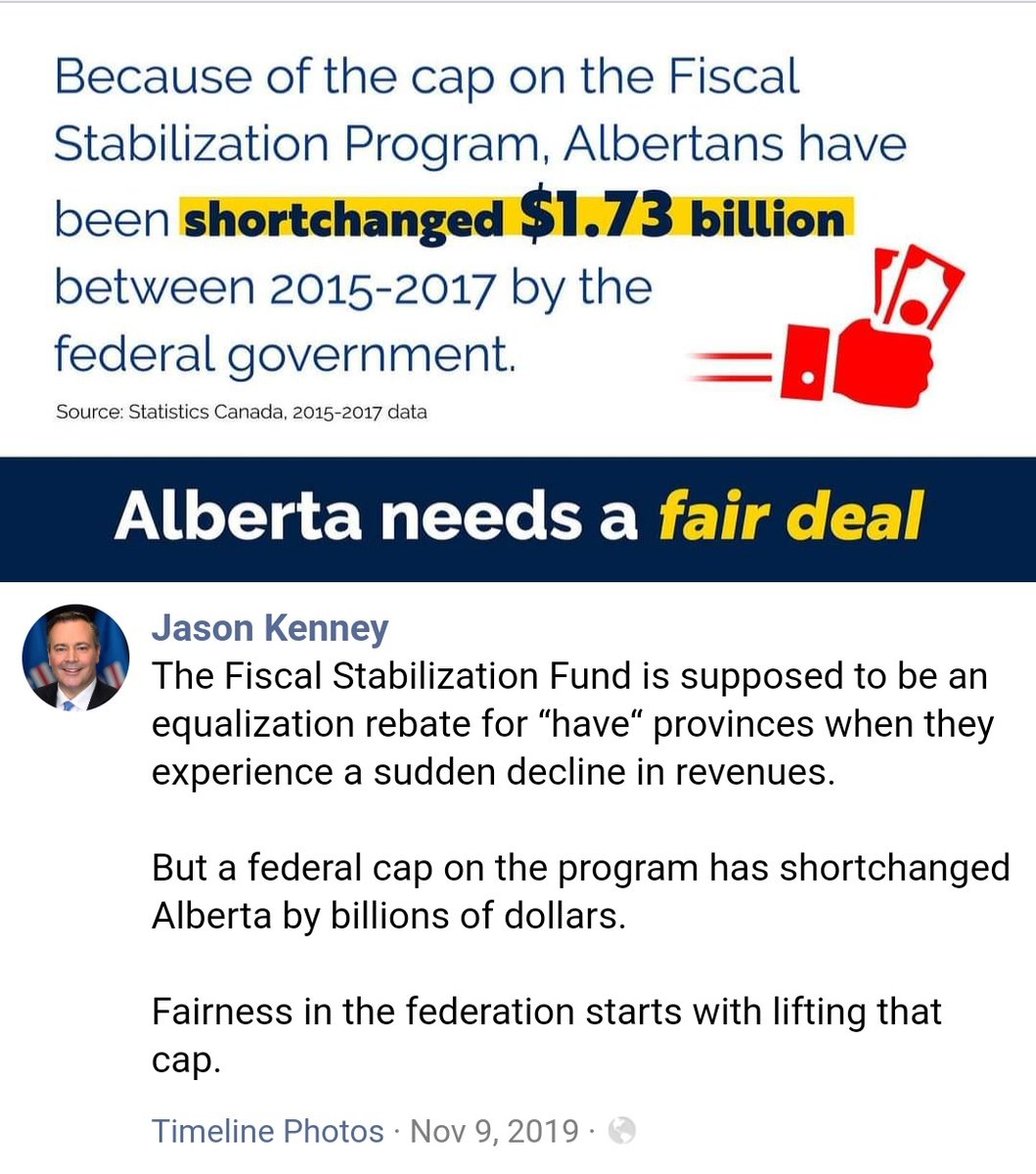
Troy highlights what I think a lot of Yes voters miss about this equalization referendum: how others perceive Alberta's opening offer. 🧵#ableg #abpoli
https://twitter.com/Troyliss/status/1446914877356855297
Threatening to remove equalization from the constitution is kind of akin to the richest guy in the neighborhood threatening to cut the power cable that runs through his yard if his neighbour's don't pay up.
No one thinks he's serious. Even when he tells them he's polled members of his family who agree with him.
He's whipped those family members into a frenzy, mind you. And some of them are threatening to leave. He tells the neigbbours: "I wanna stay, and I don't really want to cut the power line, but the only way I can convince my crazy family not to move is if you give me more money."
He continues, "my family's bought more Girl Guide cookies from your kids than you'll ever buy from mine. We practically put your kids through school. We're only asking for a bit of that back, so we can fix the engine on our second Hummer."
It's a ridiculous analogy. For certain. But it's not that far off how other Canadians view Alberta's equalization referendum.
Threatening to cut off a lifeline to other neighbours, despite the ill effects it would have on one's own home, is crazy. It would get the neigbbours' attention, but not in a productive way.
Some will respond with their own ridiculous threats, bogging down the neighborhood in petty struggles over sidewalk access and daytime parking. All the while, every one of those neighbours is struggling and needs to get its own house in order.
Point is: perceptions matter. There are productive ways of coming to consensus on how to improve the neighborhood. Polling your household, and threatenkng to cut the power or leave entirely, aren't among them.
To be clear: the rich man in this analogy does have problems. And his neighbours, if not directly to blame, are in a position to help. I do think there are ways of securing a fairer deal for Alberta. They involve building stronger relationships with neighbours, not ultimatums.
Many Albertans, and most Yes voters, will be offended by the rich man analogy. I agree, it's not an accurate portrayal. But that doesn't make it any less real for folks in the rest of Canada. And voting yes in this referendum does nothing to correct the stereotype.
• • •
Missing some Tweet in this thread? You can try to
force a refresh






